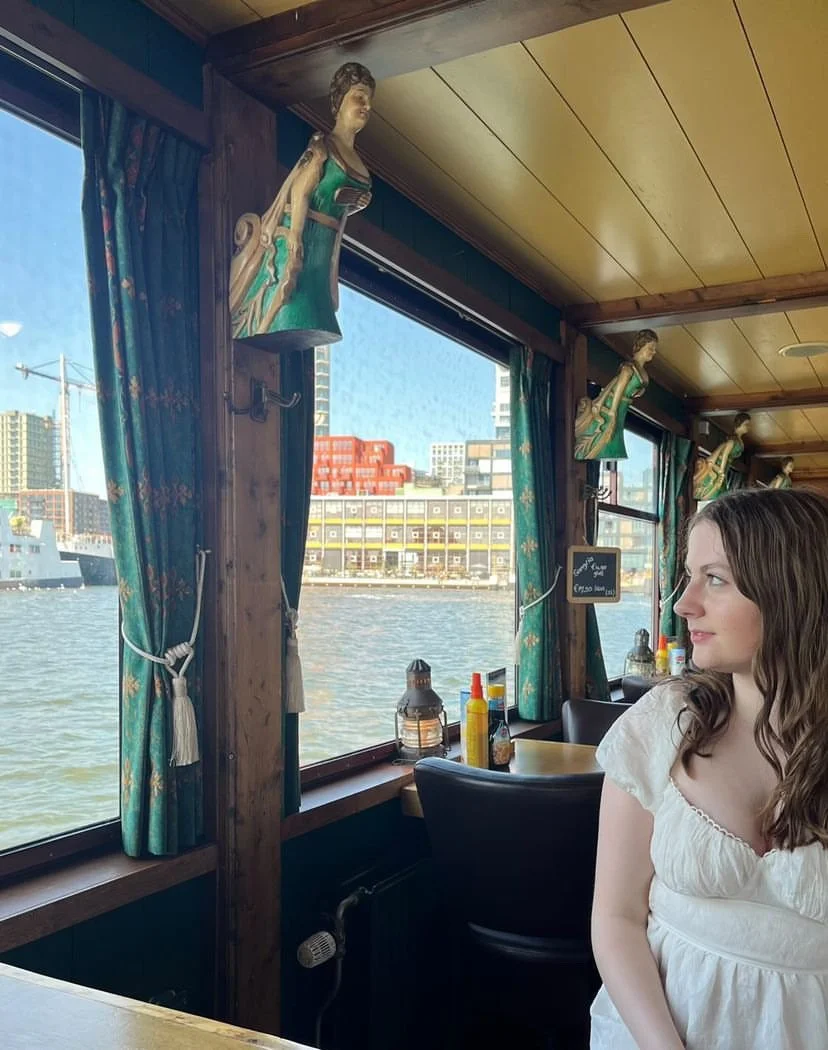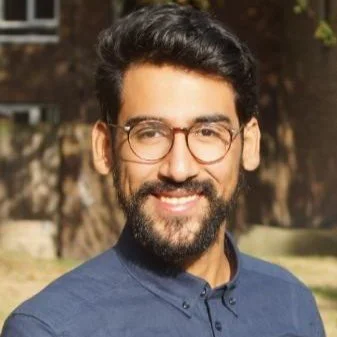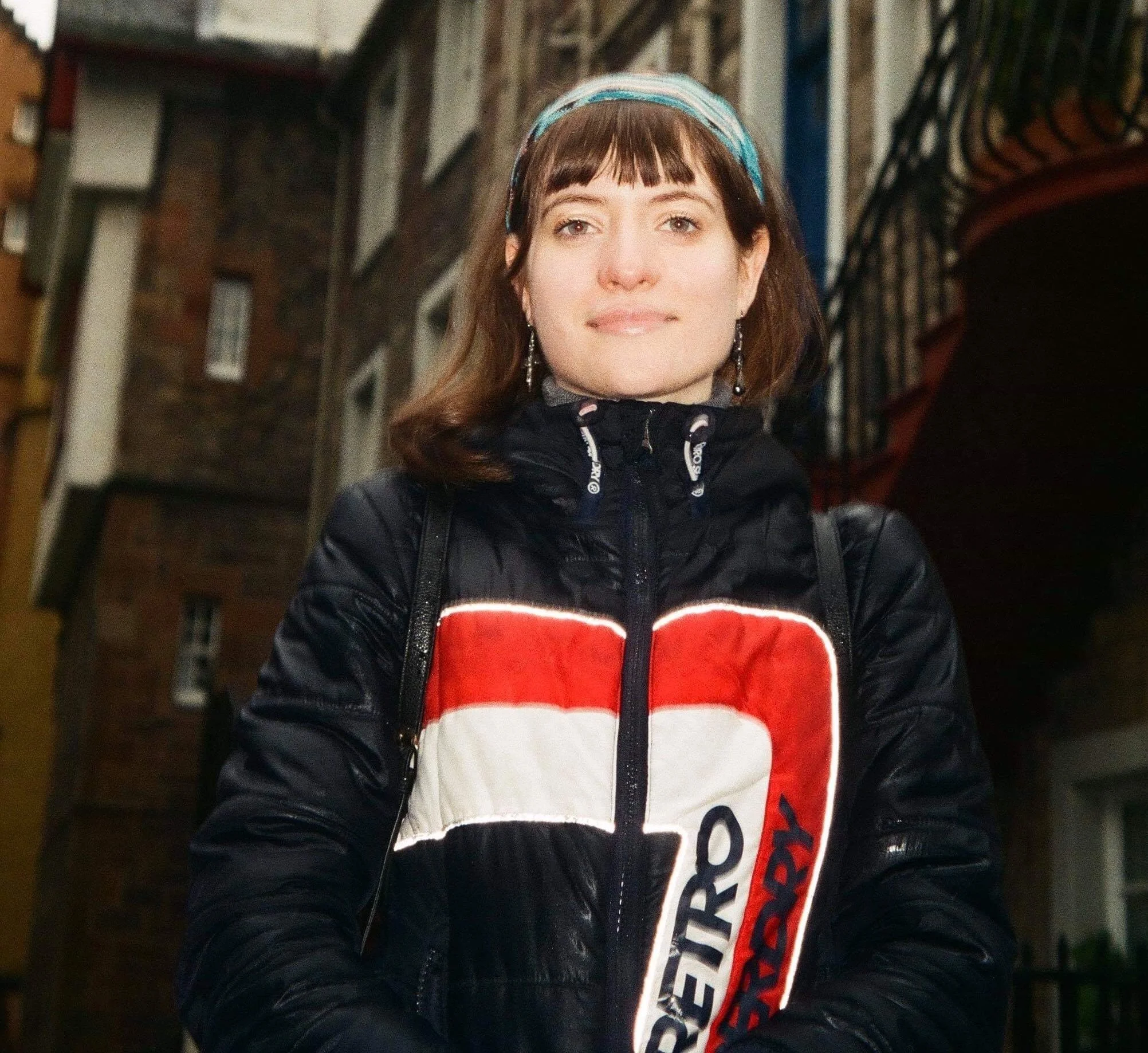Meet Our Better Tech Future Report Volunteers!
We are excited to launch our Better Tech Future report, where we highlight thought leaders in the Responsible Tech ecosystem. Here are the volunteers who helped synthesize all of the quotes from past reports and events. All Tech Is Human would not be able to achieve this without its community. We are truly thankful for all that our volunteers have contributed!
You can download the report at BetterTechFuture.com.
Clare Mulrooney (she/her),
Undergraduate, University of Cambridge
What does your vision of a "better tech future" look like? What needs to happen to achieve this vision?
My vision of a 'better tech future' is one where AI and technology is used not to bolster corporate profits, but instead to support international development and scientific innovation. I would love to see a future where tech resources are open source and freely available, and students grow up not in fear of technology but in control of it - aware of both its risks and potential, and equipped with the skills to consciously navigate it. To achieve this vision, we need widespread education and legislation focused on preventing the abuse and monopolising of developments, particularly regarding AI.
Cristian Gil (he/him/his), Researcher, Acción Pública
Twitter: @cristiangils
What does your vision of a "better tech future" look like? What needs to happen to achieve this vision?
A better tech future must be open and planet/human care-driven. Open to be understood, modified, and improved by others and care-driven in which short terms gains do not mitigate long-term purposes.
To accomplish this vision, government, companies, academia, and civil society must co-operate to get the most out of their advantages regarding regulatory power, innovation, deep research, and citizen awareness.
David Lavenda, Information Overload Expert
Twitter: @dlavenda
What does your vision of a "better tech future" look like? What needs to happen to achieve this vision?
A better tech future is one that ensures ‘technology serves humanity’ instead of the other way around. One key is educating the public about how technology is used to manipulate their opinions, choices, and viewpoints. Simultaneously, governments need to draft legislation and regulations that disincentivize tech companies from business practices that maximize profits at the public’s detriment. Furthermore, civic organizations and the media need to promote positive examples while exposing nefarious practices, with a goal of providing the public equal access and opportunity to the best that technology can afford. Specific actions include revisiting Section 230, increasing privacy provisions, enforcing age restrictions, and promoting competition by limiting company mergers. Lastly, parents need to get more involved in how their children use technology, supported by civic groups who can help parents understand the dangers related to technology overuse.
Grace Volante (she/her), Philosophy MSc Student, University of Edinburgh
What does your vision of a "better tech future" look like? What needs to happen to achieve this vision?
My vision of a "better tech future" is one which takes the drive away from profit and shifts it towards human communities, and moves away from anthropocentrism, with a motivation to include the rest of nature in tech solutions and visions. That sounds like a bunch of positive words, and it is. These are the broad stroke goals that I think we need to strive towards in order to make tech work for humanity and the world. I’m not sure we know exactly what that future will look like, but if we espouse the right methods and approach, I belive that we can achieve it. That is why we need so many different individuals and communities to be involved, because they will determine exactly how that future will look and be implemented on an everyday and local level. For now, we need those already involved and interested to be promoting an inclusive and considerate approach, as well as continuing to drive specific projects which will help a more humane tech future to come together. This involves placing importance on and dedicating time to increasing tech and digital literacy, and espousing transparency and accountability. We need to listen to and take inspiration from the young and old, all parts of the globe, and every conceivable stakeholder. This is a scale which at the moment seems incredible, and maybe it is - but how are we going to achieve a better tech future if we do not hope for a truly holistic one?
Hana Gabrielle Bidon (she/her), Technology Business Systems Associate, Wells Fargo
Twitter: @hanagabrielleb
What does your vision of a "better tech future" look like? What needs to happen to achieve this vision?
I think that a better tech future would have a net positive impact on society and minimize the harm towards underrepresented communities. To achieve this vision, it is important to incorporate people from various disciplines and realize that there isn't an easy solution.
Laura Weinstein (she/they), Trust and Safety Policy Lead, Troo.co
Twitter: @Mi_Chiamo_Laura
What does your vision of a "better tech future" look like? What needs to happen to achieve this vision?
A better tech future mirrors a better future for the world. That is, a tech future and a world in which policies enhance equality across time and place, in which all people can find their place and their voices, and where diverse people use their voices to advocate for safety, peace, and human connection. Technology doesn't have to be bloodless; rather, it can facilitate a world in which real people help each other to thrive in their lives offline.
Maira Elahi (she/her), PStudent, Riverside Secondary School
What does your vision of a "better tech future" look like? What needs to happen to achieve this vision?
When we consider the ramifications of a modern society, the rise of technology can occasionally seem terrifying and dystopian. However, the technology that will move humanity forward can be developed using sensible, moral, and intelligent principles. It can be designed with the principles of inclusivity and sustainability, and it can bring independence, education, consciousness, accessibility, and community. We can build a better tech future for a better world that encourages us. And we can endeavour to address the concerns and rights of humanity and the wider universe as we develop the technologies of the future, if only we can put the long-term before the short-term and the rights we are owed before ill-considered innovation.
Nathan Butters (he/him/his), Product Manager, Tableau
What does your vision of a "better tech future" look like? What needs to happen to achieve this vision?
A better future requires the creators of systems, tools, and technology to use their proximity to power. They must support the needs and desires of those in marginalized communities, especially the Global South, by partnering "with" them and not building "for" them.
We must also bridge the gap between the humanities and computer science fields. Our focus should be on respecting what humans believe, acknowledging why they hold those beliefs, and then understanding how that influences the context of how systems are built, understood, and contested.
Only then can we truly collaborate to make tools, and inform policy decisions, aimed directly at promoting the flourishing of all life on Earth (not just humans).
Sidrah Durrani (she/her), Graduate Student and Researcher, Teachers College, Columbia University; University Ambassador, All Tech Is Human
Twitter: @sidrahdurranii
What does your vision of a "better tech future" look like? What needs to happen to achieve this vision?
I am excited to see youth's drive and engagement behind the responsible tech movement. They envision technology as a positive force with the ability to do good, but their perspectives are often missing from the conversation. Tech companies should amplify and encourage youth voices to help realize a future with youth-friendly designs, transparency, and accountability — a better tech future that gives its community more than it takes.
Tiberiu Toca (he/him), University Ambassador / Volunteer / Mentee / Contributor, All Tech is Human
Twitter: @tiberiu_toca
What does your vision of a "better tech future" look like? What needs to happen to achieve this vision?
When I think of being able to will things into existence, my thoughts go towards the power of technology. Thus, society has a tremendous responsibility to harness its full potential to bring about positive change for all people. For myself, a "better tech future" is one where everyone is an active participant in the oversight of technological progress and its continuous development. At the moment, there is a great disconnect between the way companies treat the design of their products with respect to their customer base and the way they are used by them. This lack of dialogue and conversation has cemented a distrust of the organizations and institutions that have a stranglehold over the market looking out for their best interests, while their loyal customer base consciously but with limited choice supporting their dominance is left without answers on how to define the relationship with these companies and the products they are using. A "better tech future" empowers people to escape this loop by reassuring them that they can vote with their time, money and attention, primarily giving them a sense of true ownership over their devices and apps, avoiding being trapped and deceived by the current systems put in place. Perhaps just like the "buy what you need" philosophy, we need something along the lines of "use it only when you need to" to live more fulfilled lives that increase our independence. Perhaps the respect in the relationship has been too one-sided so far in favor of technology, so this future will shift the balance to people's real priorities.
Zoe Wagner (them/they), Facilitator, Organizer & Community Educator, (Currently open to work)
What does your vision of a "better tech future" look like? What needs to happen to achieve this vision?
I want to see the success of technology be the humans who thrive because of it. For a better tech future, we need innovation to be virtue-based rather than consequentialist, meaning that ethical decisions should not be motivated by avoiding consequences, but rather driven to promote human and environmental flourishing.












